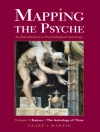Open Mind, Open Heart
Millions have found mindfulness to be a powerful practice for reducing stress, enhancing attention, and instilling tranquility. But it can offer so much more—it can transform you, make you more fully awake, alive, and aware of your connection to all beings. In Japanese, the character that best expresses mindfulness, 念, consists of two parts—the top part, 今, meaning “now, ” and the bottom part, 心, meaning “heart.” Using stories from his own life as the son of an Irish father and a Japanese mother, a professor in Japan and America, a psychotherapist, a father, and a husband, Stephen Murphy-Shigematsu describes eight “heartfulness” principles that help us realize that the deepest expression of an enlightened mind is found in our relation to others.
Tabla de materias
Preface
Introduction
1. Beginner’s Mind
2. Vulnerability
3. Authenticity
4. Connectedness
5. Listening
6. Acceptance
7. Gratitude
8. Service
Acknowledgments
Bio
Notes
Sobre el autor
Stephen Murphy-Shigematsu is a psychologist with a doctorate from Harvard University, with training also in yoga, meditation, and Chinese medicine. He was a tenured professor in Tokyo from 1989-2005, and has been faculty at Stanford from 2002-2005 and 2008- present. His publishing record includes books in Japan and U.S. He is the author of two books, Multicultural Encounters (Teachers College Press) and When Half is Whole (Stanford University Press). He has also published edited volumes in English, numerous scholarly journal articles, as well as magazine, newspaper articles.












